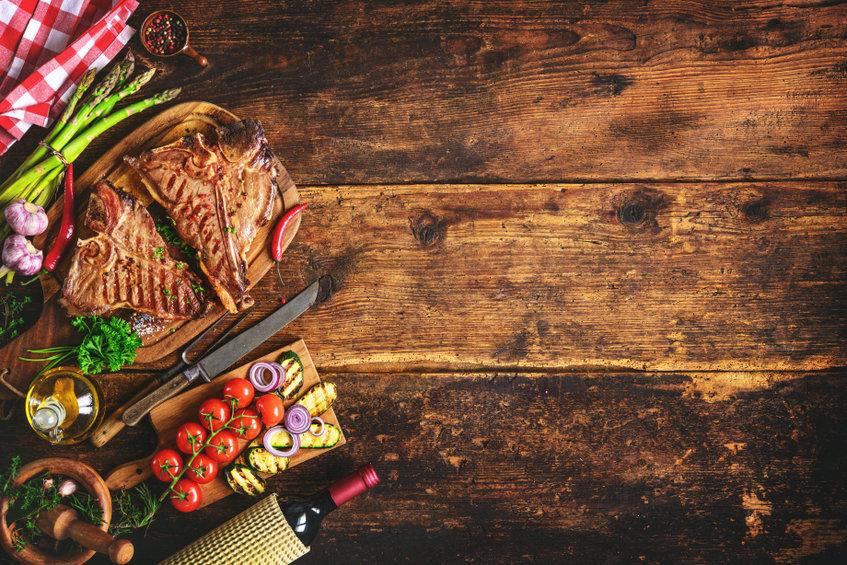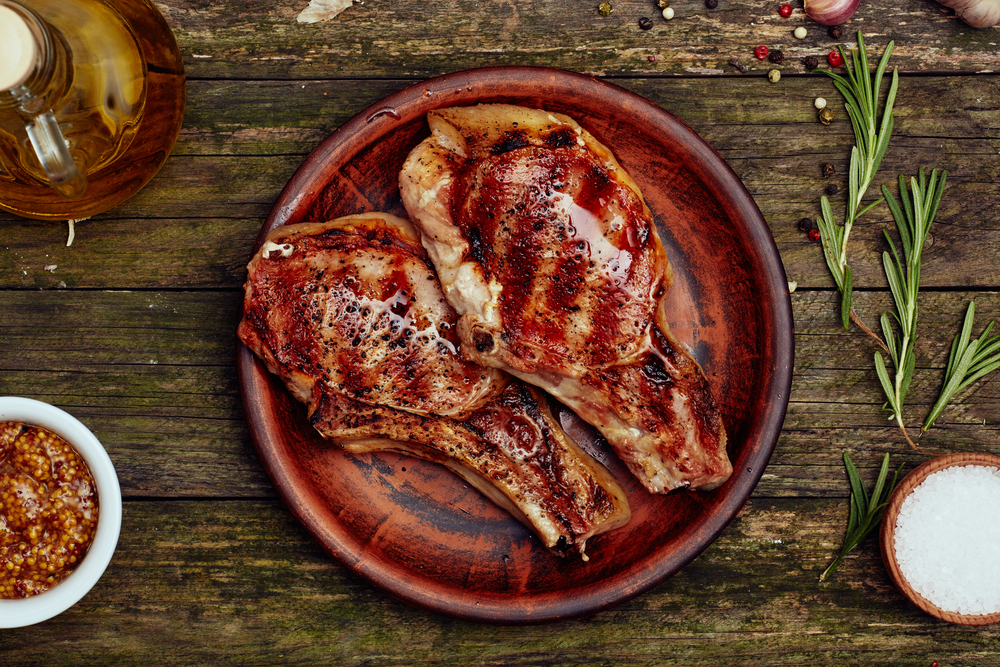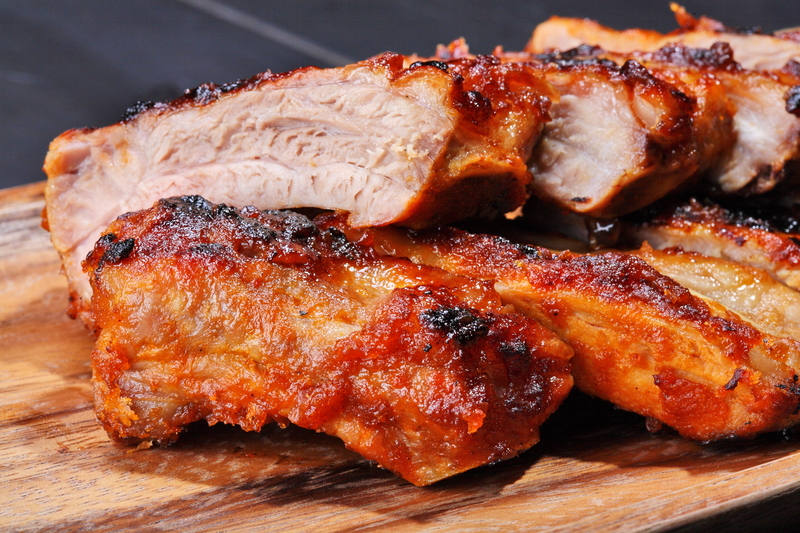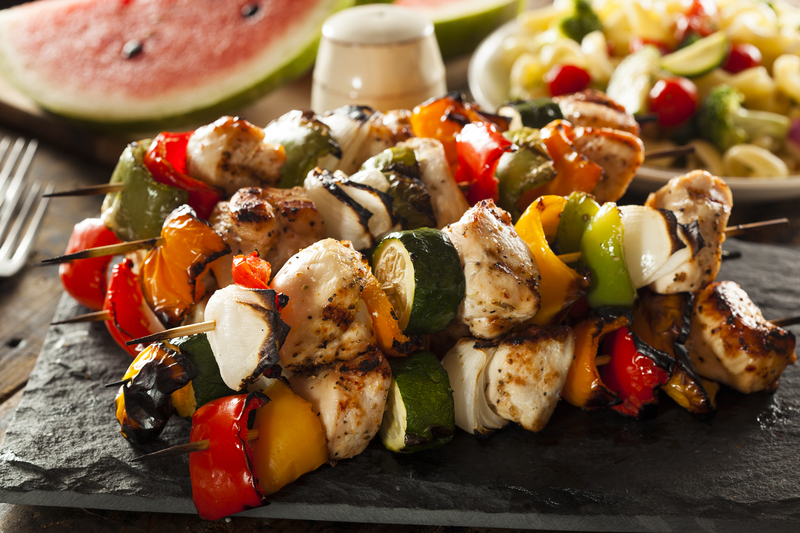
Cooking methods have long been a topic of discussion among enthusiasts and health-conscious individuals alike.
Each approach, whether using charcoal or propane, has its proponents and advocates who tout specific benefits.
The choice between charcoal and propane can impact both the flavor of the food and the health factors associated with cooking.
Charcoal grilling is often celebrated for its ability to impart a unique smoky flavor to food, with many believing that this method offers a more authentic barbeque experience.
However, it can produce harmful compounds when burned at high temperatures.
On the other hand, propane provides a cleaner burn, leading to fewer harmful byproducts in the cooking process, but it may lack the rich flavor that charcoal enthusiasts cherish.
Ultimately, health implications play a crucial role in this debate.
Understanding the differences between these cooking methods can help anyone make a more informed choice that aligns with their culinary preferences and health goals.
Understanding the Basics of Cooking with Charcoal and Propane

Cooking with charcoal and propane offers distinct experiences, each with its own advantages.
The choice between them often depends on flavor preferences, convenience, and cooking techniques.
Charcoal Grilling: An Overview
Charcoal grilling uses charred wood materials to generate heat.
This method produces high temperatures, making it ideal for searing meats.
A charcoal grill requires time for the coals to reach the desired temperature, which can take 15 to 30 minutes.
The flavor imparted by charcoal is often described as smoky and rich.
Many enthusiasts appreciate the unique taste that comes from using hardwood lump charcoal or briquettes.
The choice of charcoal can impact the final flavor profile.
Temperature control is achieved through airflow management.
Adjusting the vents affects how much oxygen reaches the coals, thus influencing cooking speed.
Charcoal can be less predictable compared to gas but offers a hands-on grilling experience.
Propane Grilling: An Overview
Propane grilling utilizes gas stored in cylinders, providing a quick and efficient heating source.
This method allows for immediate ignition and temperature control with knobs, making it a convenient choice for many.
The flavor from propane is generally milder compared to charcoal.
However, propane grills can still achieve excellent results with marinated or seasoned foods.
Many users appreciate the consistent heat and less hands-on management involved.
Additionally, propane grills often come with features such as side burners and rotisserie attachments.
These options enhance versatility and the ability to cook multiple dishes simultaneously.
Propane is favored for its convenience, especially for those who grill frequently.
Health Considerations in Cooking Methods

The cooking method chosen can significantly impact health due to various compounds produced during grilling.
Key concerns include the formation of carcinogens and how to mitigate potential health risks associated with different fuels.
Carcinogens in Grilling
Grilling, whether using charcoal or propane, can produce harmful substances that raise health concerns.
When meat is cooked at high temperatures, especially over an open flame, two main types of carcinogenic compounds can form: heterocyclic amines (HCAs) and polycyclic aromatic hydrocarbons (PAHs).
- HCAs are formed when amino acids and creatine in meat react at high cooking temperatures.
- PAHs occur when fat drips onto the heat source, creating smoke that deposits these compounds back onto the food.
Both HCAs and PAHs have been linked to increased cancer risk in numerous studies.
Additionally, grilling can generate advanced glycation end-products (AGEs), which are associated with inflammation and oxidative stress in the body.
Reducing Health Risks
Reducing health risks when grilling involves several strategies that can limit the formation of harmful compounds.
These tips can help:
- Lower Cooking Temperature: Cook meat at lower temperatures to decrease HCA and PAH formation.
- Pre-cooking Methods: Consider methods like marinating meat or partially cooking it in the microwave, which can significantly reduce harmful compound formation.
- Using Lean Cuts: Opt for lean cuts of meat to lessen fat dripping, reducing PAH exposure.
- Propane vs. Charcoal: Propane tends to produce fewer PAHs than charcoal, making it a potentially healthier option.
Awareness of these factors can help individuals make informed choices about grilling methods and health implications.
Taste and Nutritional Impact

The choice between charcoal and propane grilling affects both flavor and nutritional aspects of the food.
Understanding the specifics of each method can guide preferences in taste and health.
Flavor Profiles of Charcoal vs. Propane Grilling
Charcoal grilling is known for imparting a distinct, smoky flavor to food.
This is attributed to the combustion of charcoal, which produces aromatic compounds that enhance the meat’s taste.
Foods grilled over charcoal tend to have a deeper, more complex flavor.
In contrast, propane grills deliver a more straightforward cooking experience.
They cook food quickly with a consistent heat that doesn’t impart the same smoky essence.
The flavor can be more reliant on marinades or seasoning rather than the cooking method itself.
For those who prefer a pronounced smokiness, charcoal is the preferred choice.
Propane, while efficient, may not satisfy those looking for that signature grilled taste.
Nutritional Differences in Grilling Methods
When it comes to nutrition, grilling methods can impact health.
Cooking with charcoal often leads to the formation of polycyclic aromatic hydrocarbons (PAHs) and heterocyclic amines (HCAs), two potentially harmful chemicals that are created when fat from the meat drips onto the hot coals.
These chemicals have been linked to increased cancer risk in various studies.
PAHs are found in the smoke produced by burning charcoal, while HCAs form when meat is exposed to high heat.
The longer the cooking time and the higher the temperature, the more likely these compounds are to form.
On the other hand, propane grills generally produce fewer harmful chemicals.
Propane burns cleaner than charcoal, resulting in less smoke and fewer PAHs.
Propane also provides more consistent, controllable heat, reducing the chances of over-charring or burning the food, which can contribute to the formation of HCAs.
Additionally, propane grills allow for more even cooking, which helps reduce the likelihood of charring and thus minimizes the production of these potentially harmful substances.
To make grilling even healthier, regardless of the fuel used, consider these tips:
- Marinate meats: Marinating meat can help reduce the formation of HCAs.
- Use lean cuts: Reducing the fat content of meats can limit the amount of fat that drips onto the grill and lowers smoke production.
- Grill at lower temperatures: Cooking at moderate temperatures instead of high heat can help minimize the formation of both PAHs and HCAs.
- Avoid direct exposure to flames: Try to use indirect grilling methods or keep the food off direct contact with the flame to reduce the risk of charring.
In conclusion, while both grilling methods have their nutritional implications, propane is generally considered a healthier option due to its cleaner burn and lower production of harmful chemicals.
Environmental and Practical Considerations

The environmental and practical factors surrounding the use of charcoal and propane are crucial for informed decision-making.
This section explores the implications of each fuel type on the environment and their usability in everyday grilling.
Assessing the Environmental Impact
Charcoal, particularly lump charcoal, is derived from wood and can release significant amounts of volatile organic compounds (VOCs) during combustion.
In contrast, charcoal briquettes often contain additives that can contribute to pollution.
The burning of charcoal generates more particulate matter compared to propane, leading to increased greenhouse gas emissions.
Propane, a fossil fuel, burns cleaner than charcoal, producing fewer emissions.
According to the U.S. Environmental Protection Agency, propane generates approximately 60% less CO2 than charcoal.
Additionally, propane grills emit negligible VOCs, making them a more environmentally friendly option.
However, the extraction and transportation of propane have ecological impacts, emphasizing the importance of considering the entire lifecycle of each fuel type.
Comparing Convenience and Ease of Use
When comparing convenience, propane grills stand out for their quick ignition and consistent heat.
Users can easily control the temperature, making it advantageous for precision cooking.
The clean-burning nature of propane also means less cleanup after grilling.
Charcoal cooking requires more time and effort, as it takes longer to ignite and reach cooking temperature.
Managing charcoal can be challenging, as temperatures fluctuate more than with propane.
Additionally, the ash residue from charcoal can create more mess, requiring more significant post-cook cleanup.
While charcoal enthusiasts value the flavor it imparts to food, those prioritizing convenience and ease often prefer propane.
Each option has distinct advantages that cater to different grilling preferences and needs.
Comparing Grilling Performance and Control

Grilling performance and control significantly impact the cooking experience.
Factors like temperature regulation and cooking techniques can influence food quality, flavor, and safety.
Temperature Regulation and Consistency
Charcoal grills offer a traditional method that requires skill for temperature control.
The heat level can vary based on the amount and distribution of charcoal, making it less predictable.
Users often need to manage airflow through vents to maintain desired cooking temperatures.
Propane grills provide more precise temperature control.
They allow users to quickly adjust the flame and achieve consistent heat across the cooking surface.
Digital thermometers may also help monitor temperatures effectively, enhancing cooking accuracy.
Ultimately, the choice between charcoal and propane can depend on the desired cooking style.
Those who appreciate the smoky flavor of charcoal might prioritize the experience over precision.
Cooking Techniques and Food Safety
Cooking techniques on charcoal and propane grills differ notably.
Charcoal grilling often involves methods like searing and smoking.
It can produce a distinct flavor due to the combustion of organic material.
Propane grilling excels in precision, allowing for various methods such as direct and indirect cooking.
Temperature consistency aids in achieving specific cooking temperatures for different foods, which helps maintain food safety.
Food safety is crucial in grilling.
Undercooking meat can lead to foodborne illnesses.
Propane users can ensure even cooking, reducing the risk of bacteria.
Charcoal users must be vigilant, focusing on even heat distribution to achieve safe cooking levels.
Aesthetic and Social Aspects of Grilling

Outdoor grilling not only involves cooking but also fosters a social environment and reflects cultural practices.
The choice of grilling style can enhance gatherings and create memorable experiences for those involved.
Cultural Significance of Outdoor Grilling
Grilling holds deep cultural roots in many societies.
In regions like the Southern United States, it symbolizes community, often bringing families and friends together for backyard barbecues.
In other cultures, specific grilling methods, like using wood chips for smoking, add traditional flavors and aromas to the food.
Different cultures may prefer various grilling techniques.
For instance, charcoal grilling might be more prominent in certain areas due to its association with enhancing flavor and creating a specific atmosphere.
This communal aspect transforms grilling into not just a cooking method, but a celebration of culture and togetherness.
Selection Factors for Your Grilling Style
When choosing a grilling style, factors like flavor, convenience, and health considerations come into play.
Charcoal grilling often provides a smoky taste that many find appealing.
This style can be linked to healthier grilling practices when used with minimal additives.
Conversely, propane offers convenience and ease of use, often appealing to those new to grilling.
The decision may depend on individual preferences for flavor versus practicality.
Health concerns may also influence the choice of grilling methods.
For instance, selecting lean meats and incorporating smoke during cooking can add depth of flavor while supporting healthier grilling practices.
Advantages and Disadvantages of Each Method

Cooking with charcoal and propane has distinct benefits and drawbacks.
Understanding these can help grill enthusiasts choose the best method for their cooking needs.
Pros and Cons of Charcoal Grilling
Pros:
- Flavor Profile: Charcoal provides a distinct smoky flavor that many grilling enthusiasts prefer. This enhances the taste of meats and vegetables.
- Cost-Effective: Charcoal grills tend to have a lower initial purchase cost compared to gas grills. The long-lasting nature of charcoal can also be economical for frequent grillers.
- Portability: Many charcoal grills are lightweight and designed for easy transport, making them a popular option for camping or tailgating.
Cons:
- Time-Consuming: Charcoal requires more time to heat up. This can be a disadvantage for those seeking a quick grilling solution.
- Temperature Control: Achieving precise temperature control can be more challenging with charcoal. It often requires the user to monitor and adjust the arrangement of briquettes.
Pros and Cons of Gas Grilling
Pros:
- Convenience: Gas grills ignite quickly, making them ideal for those who want to grill without much preparation time. This method also allows for easy on-and-off functionality.
- Temperature Control: Gas grills feature burners that allow for precise temperature regulation. This ensures consistent cooking results across various foods.
- Accessories: Many gas grills come equipped with additional features like rotisserie kits, side burners, and built-in lights, enhancing the grilling experience.
Cons:
- Flavor Profile: Some argue that gas grilling does not provide the same depth of flavor as charcoal grilling. This could be a drawback for gourmet enthusiasts.
- Cost: The initial investment for gas grills can be higher, along with potential ongoing costs for propane refills.
Making an Informed Decision: Charcoal vs. Propane

Choosing between charcoal and propane for grilling involves several important factors that can impact both the cooking experience and health considerations.
Understanding these factors helps in making a well-rounded decision.
Factors to Consider when Choosing Your Grill
Flavor and Cooking Style
Charcoal barbecue often provides a distinctive smoky flavor, which many enthusiasts prefer.
Propane grills, on the other hand, offer quicker heat control and even cooking.
Choosing a method may depend on whether flavor or efficiency is prioritized.
Environmental Impacts
Charcoal production typically involves more carbon emissions than propane.
Additionally, the sourcing of charcoal can lead to deforestation.
Propane, being a cleaner-burning fuel, generally has a lower environmental footprint during use, though its production also has ecological impacts.
Health Considerations
Both cooking methods present concerns regarding cancer risk.
Charcoal grilling can produce harmful chemicals due to high temperatures and flare-ups.
Propane may produce fewer harmful compounds, yet it is essential to manage heat to avoid potential risks.
Understanding these health implications is vital for consumers.

